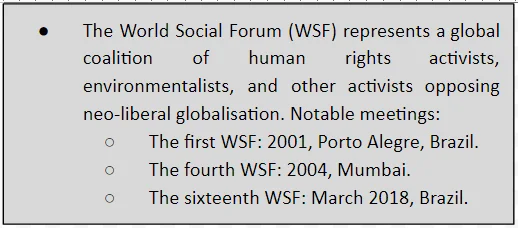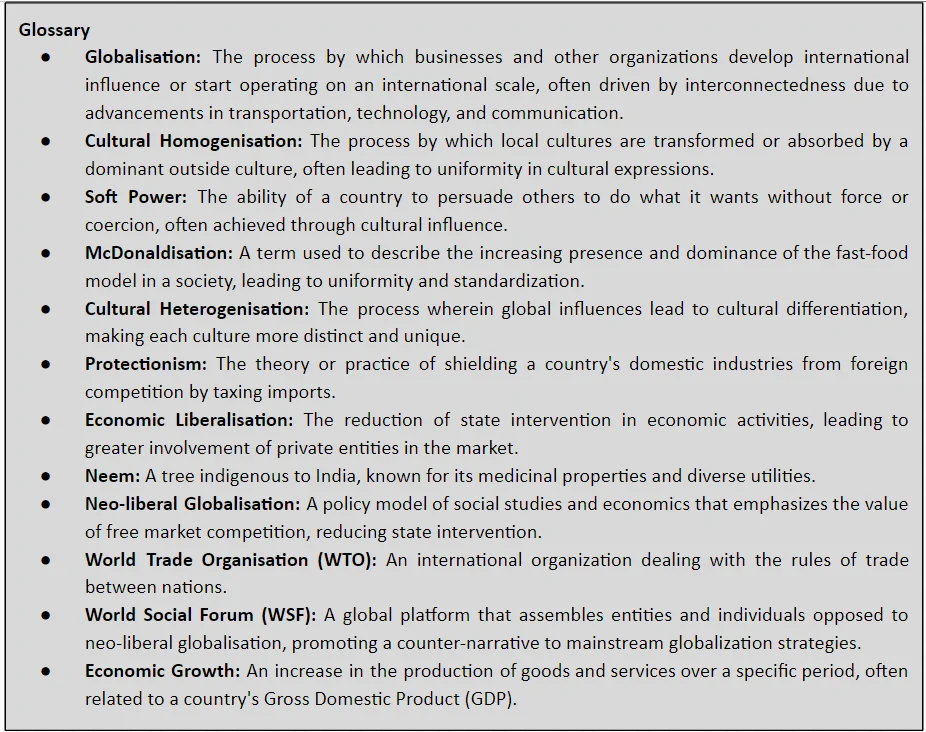India has experienced aspects of globalization, including the movement of capital, commodities, ideas, and people, for several centuries. Globalization has transformed the economy of India in the last thirty years by allowing foreign investment and technology into the country. This change advanced industries such as IT and pharmaceuticals, establishing India as a worldwide center for innovation. Nevertheless, it also introduced obstacles like economic inequalities and environmental issues. India’s encounter demonstrates the two effects of globalization – economic growth alongside social and environmental challenges – as it aims to harmonize development with sustainability in a fast-globalizing world.
Background: Faced with a financial crisis and the aspiration for improved economic growth, India initiated a series of economic reforms in 1991.
Globalization has faced criticism globally due to its perceived divisive effects.

| Must Read | |
| Current Affairs | Editorial Analysis |
| Upsc Notes | Upsc Blogs |
| NCERT Notes | Free Main Answer Writing |
Throughout literature, globalization stands out as a predominant topic, influencing multiple academic spheres. This discourse has unpacked the multifaceted nature of globalization, from its driving forces to its widespread political, economic, and cultural repercussions. Central to this exploration has been the symbiotic relationship between India and globalization, highlighting India’s dual role as both an influencer and a recipient of global trends. As globalization faces challenges and resistance, the significance of Indian social movements becomes undeniably evident, marking India’s proactive stance in this global narrative.

| Related Articles | |
| GLOBALISATION | ECONOMIC GROWTH |
| Colonial Rule and Tribal Life in India: Struggles, Resistance and Transformation | POPULATION IN INDIA |
<div class="new-fform">
</div>
